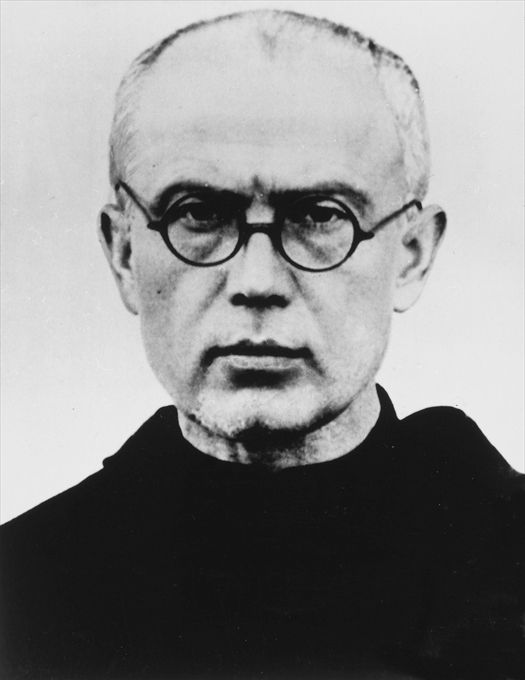De Maria numquam satis (– You can never say enough aboutMary)
Bernard of Clairvaux coined this famous saying, which has been the motto of Marian devotion until our days. When St. Pius IX proclaimed the dogma of the Immaculate Conception of Mary in his bull Ineffabilis Deus on December 8, 1854, this dictum once again reached a climax of popularity.
One of the great saints and thinkers of the Catholic Church – St. Maximilian Kolbe – took the Immaculate Conception as the starting point for his Marian devotion and his Mariology.
The devout Franciscan – who died so brutally in a concentration camp – understood the doctrine of the Immaculate Conception as a comprehensive exaltation of Mary above all creation – and precisely for this reason thought one could never say enough about Mary.
But in concrete terms, what does it mean?
On the one hand it expresses that one can never meditate the mysteries of Mary enough. As a theologian one can only approach the mystery that envelops the Virgin in respectful contemplation. Her beauty and her Immaculate Conception, her perfection as a sinless creature, as virgin and mother, offers inexhaustible depths for theological reflection and meditation. Whatever one says about Mary, one cannot do her justice. She is the model of all human beings and the mediator of all the graces of God.
Secondly, it also means that the believer can never pray enough to Mary, can never praise her enough. As Mother of God and Mother of the Church, she is thus – as the perfect creature – inseparably connected with the Christian mystery of faith. There is no Christianity without Mary! There is no such thing as too much prayer to Mary!
Maximilian Kolbe was filled with a deep Marian devotion – in his writings a true Mariology appears. For him, Mary could not be praised enough, and so he was irritated by the concern that an “excessive Marian devotion” could offend Jesus: “Often it irritates me when, while I am reading, I notice that people emphasize with excessive zeal that the Divine Mother ‘according to Jesus’ is all our hope. Obviously this cannot be a precise expression. However, the exaggerated concern not to leave out any such clause – certainly because of the veneration of Jesus Christ – I consider as an insult to Him”. He was convinced that one could never venerate Mary too much and thereby offend Jesus.
In essence, Kolbe was a “maximalist” when it came to the veneration of Mary, i.e. quite simply to entrust everything to Mary. Nothing was further from Kolbe’s mind than to reduce Marian devotion to the bare essentials, to be a “minimalist”. Mary is not only worthy of a little veneration, but a total and complete devotion.
A second aspect stands out in the Franciscan’s Mariology. To understand his many writings on the topic, one must understand the “privilege of ever greater love” of Franciscan thought.
This prerogative demands that the Blessed Mother, in her excellence, be given a devotion that surpasses all creatures. The believer can never fall prey to unreasonable exaggeration, but he acts exactly as he should act: in the ever-growing love for Mary and for God.
Such a love does not remain abstract or spiritualized, but becomes concrete and gives itself “through Jesus and Mary”. With this hermeneutical key of greater love, the richness of the Mariology of our Saint opens up. His teaching, actually a theology of love, did not remain on paper, but became a martyrdom of love – a sacrifice for the Immaculate Conception, for this greater love – even to the point of death.
In light of these few and imperfect reflections, one can guess that St. Maximilian Kolbe considers Mary to be the saint par excellence and the crown of all creatures. She is the masterpiece of grace: “By herself she is not like other creatures, but through the works of God she is the most perfect among creatures.”
The Mariological approach of St. Maximilian Kolbe thus surpasses any naturalism, any confusion between natural and supernatural life, since it gives priority to grace, to God’s intervention. Mary is the masterpiece of God: not only the summit of creation, but also the summit of his sanctifying love.
Let us pray with St. Maximilian Kolbe that Mary, Undoer of knots, may loosen the knot of the lack of veneration of the saints and of Our Lady. May she pour humility and love into our hearts, so that we may become Mary’s children.
Allow me to praise you, O Virgin Most Holy.
Allow me to praise you with my commitment and personal sacrifice.
Allow me to live, work, suffer, be consumed and die for you, only for you.
Allow me to bring the whole world to you.
Allow me to contribute to an ever-greater exaltation of you, to the greatest possible exaltation of you.
Allow me to render such glory unto you as no one has ever rendered unto you so far.
Allow others to pass me in zeal for your exaltation, and grant that I may surpass them, so that in noble emulation, your glory may grow deeper and deeper, faster and faster, more and more intensely, as the One wishes Who raised you up so ineffably above all beings. Amen
Jan Bentz

